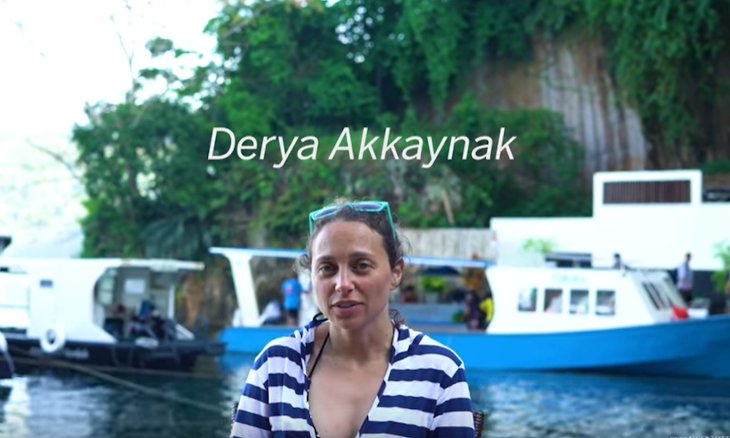Turkish oceanographer develops algorithm that 'erases' water from underwater photos
Turkish engineer and oceanographer Derya Akkaynak has created an algorithm that removes the visual distortion caused by water from an image. Akkaynak's algorithm may have far-reaching consequences for marine biologists who rely on accurate colors to count and classify species.
Duvar English
A Turkish oceanographer and engineer named Derya Akkaynak has created an algorithm that can, in her words, "remove water" from an underwater photography. The result is a "physically accurate" image of marine life if we were ever to see it on dry land.
Akkaynak developed this technology, called Sea-thru, while she was a post-doctoral fellow under Tali Treibitz at the University of Haifa in Israel. Akkaynak and Treibitz detailed the process in a paper presented in June at the IEEE Conference on Computer Vision and Pattern Recognition.

"I really see this as the start of the artificial intelligence boom in marine science...Sea-thru takes an underwater image and removes the water from it. And it looks just like it would if you took the photo on land," Akkaynak told Scientific American magazine in an interview.
Why do all the pictures you take underwater look blandly blue-green? The answer has to do with how light travels through water. @dakkaynak, an oceangoing engineer, has figured out a way to recover the colorful brilliance of the deep.
— Scientific American (@sciam) November 13, 2019
Read the full story: https://t.co/0hgKoPkS4B pic.twitter.com/HLESmzg4Ap
The issue with underwater images is that the light gets absorbed and scattered as it travels through the water, leading colors to fade away, said Akkaynak. "That’s why underwater images look so dull and distorted all the time." But, Sea-thru solves this problem, making us see the underwater world just like we would on the surface.
"This method is not photoshopping an image; it is not enhancing or pumping up the colors in an image. It is a physically accurate correction rather than a visually pleasing modification," Akkaynak said.
"I imagine, in addition to scientists, recreational divers or underwater photographers would also be very interested in using this method because finally from their images, they can remove all the degrading components and see the vivid colors of a scene just the way they would have as if that scene was on land."
